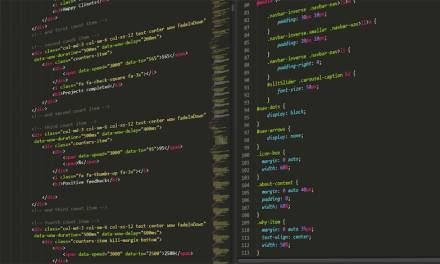Table of Contents
“Unlock the full potential of your team with the ultimate roadmap for talent reviews in 2024.”
Introduction
Introduction:
“A Comprehensive Guide to Conducting Talent Reviews in 2024” is a comprehensive resource that provides organizations with a step-by-step approach to effectively conduct talent reviews in the year 2024. This guide aims to assist HR professionals, managers, and leaders in identifying and developing top talent within their organizations. It covers various aspects of talent reviews, including the importance of talent management, the process of conducting talent reviews, key considerations for evaluating performance and potential, and strategies for creating actionable development plans. By following this guide, organizations can enhance their talent management practices and ensure the long-term success of their workforce in the dynamic business landscape of 2024.
The Importance of Talent Reviews in 2024

A Comprehensive Guide to Conducting Talent Reviews in 2024
In today’s rapidly changing business landscape, organizations are constantly seeking ways to stay ahead of the competition. One crucial aspect of achieving this is by identifying and nurturing top talent within the company. Talent reviews have emerged as a powerful tool for organizations to assess and develop their employees’ skills and potential. In this article, we will explore the importance of talent reviews in 2024 and how they can contribute to an organization’s success.
First and foremost, talent reviews provide a comprehensive overview of an organization’s workforce. By evaluating employees’ performance, skills, and potential, organizations can gain valuable insights into their talent pool. This information allows them to make informed decisions regarding promotions, succession planning, and talent development initiatives. In 2024, where the competition for top talent is fiercer than ever, having a clear understanding of the capabilities and potential of employees is crucial for organizations to retain and attract the best talent.
Furthermore, talent reviews help identify skill gaps within the organization. By assessing employees’ competencies and comparing them to the skills required for future roles, organizations can identify areas where additional training or development is needed. This proactive approach ensures that the organization is equipped with the right skills to meet future challenges. In 2024, where technological advancements and industry disruptions are reshaping job requirements, organizations must be agile in upskilling their workforce to remain competitive.
Talent reviews also play a vital role in succession planning. By identifying high-potential employees, organizations can groom them for future leadership positions. Succession planning is particularly crucial in 2024, as many organizations are facing a wave of retirements from the baby boomer generation. By identifying and developing potential successors, organizations can ensure a smooth transition of leadership and maintain continuity in their operations.
Moreover, talent reviews contribute to employee engagement and motivation. When employees see that their organization is invested in their development and growth, they are more likely to be engaged and committed to their work. In 2024, where the demand for skilled workers is high, organizations cannot afford to lose their top talent due to lack of development opportunities. Talent reviews provide a platform for open and honest conversations between employees and managers, fostering a culture of continuous learning and improvement.
To conduct effective talent reviews in 2024, organizations must adopt a systematic and data-driven approach. Utilizing technology and analytics can help streamline the review process and provide objective insights. Additionally, involving multiple stakeholders, such as HR, managers, and employees themselves, ensures a holistic and well-rounded assessment. Regularly reviewing and updating talent review processes based on feedback and changing business needs is also essential to keep them relevant and effective.
In conclusion, talent reviews are of utmost importance in 2024 for organizations to thrive in a competitive business environment. By providing a comprehensive overview of the workforce, identifying skill gaps, facilitating succession planning, and fostering employee engagement, talent reviews contribute to an organization’s success. Adopting a systematic and data-driven approach, involving multiple stakeholders, and regularly reviewing and updating the talent review process are key to conducting effective talent reviews in 2024. With the right talent in place, organizations can navigate the challenges of the future and achieve sustainable growth.
Best Practices for Conducting Talent Reviews in 2024
A Comprehensive Guide to Conducting Talent Reviews in 2024
In today’s fast-paced and competitive business environment, talent management has become a critical aspect of organizational success. Companies are increasingly recognizing the importance of identifying and developing their top talent to drive innovation, productivity, and growth. One of the key tools in talent management is conducting talent reviews, which provide a comprehensive assessment of an organization’s workforce and help identify high-potential employees.
To ensure the effectiveness of talent reviews in 2024, it is essential to follow best practices that align with the evolving needs of the business landscape. This article will outline some of these best practices and provide guidance on how to conduct talent reviews successfully.
First and foremost, it is crucial to establish clear objectives for the talent review process. This involves defining the purpose of the review, such as identifying high-potential employees, assessing performance, or succession planning. By setting clear objectives, organizations can ensure that the talent review process is focused and aligned with their strategic goals.
Next, organizations should adopt a holistic approach to talent reviews by considering multiple dimensions of employee performance and potential. This includes evaluating not only job performance but also factors such as leadership skills, adaptability, and learning agility. By taking a comprehensive view of talent, organizations can identify individuals who have the potential to excel in different roles and contribute to the organization’s long-term success.
To ensure objectivity and fairness in talent reviews, it is essential to establish a robust evaluation framework. This framework should include clear criteria for assessing performance and potential, as well as guidelines for rating employees consistently. Additionally, organizations should train managers and evaluators on how to conduct fair and unbiased talent reviews, ensuring that personal biases do not influence the assessment process.
Another best practice for conducting talent reviews in 2024 is to leverage technology to streamline the process. With advancements in HR technology, organizations can now automate various aspects of talent reviews, such as data collection, analysis, and reporting. This not only saves time and effort but also enables organizations to gather and analyze large amounts of data more effectively, leading to more accurate and insightful talent assessments.
Furthermore, organizations should ensure that talent reviews are not conducted in isolation but are integrated into the broader talent management process. This means linking talent reviews with other HR processes, such as performance management, learning and development, and succession planning. By integrating talent reviews with these processes, organizations can create a seamless talent management system that supports the development and retention of top talent.
Lastly, organizations should prioritize ongoing feedback and coaching as part of the talent review process. Talent reviews should not be seen as a one-time event but as an opportunity to provide employees with constructive feedback and guidance for their development. By offering regular feedback and coaching, organizations can help employees understand their strengths and areas for improvement, ultimately fostering their growth and engagement.
In conclusion, conducting talent reviews in 2024 requires organizations to follow best practices that align with the evolving needs of the business landscape. By establishing clear objectives, adopting a holistic approach, ensuring objectivity, leveraging technology, integrating talent reviews with other HR processes, and prioritizing ongoing feedback and coaching, organizations can conduct talent reviews successfully and drive the development and retention of top talent. As talent continues to be a critical driver of organizational success, investing in effective talent reviews is essential for staying competitive in the ever-changing business environment.
Key Metrics and Measurements for Talent Reviews in 2024
A Comprehensive Guide to Conducting Talent Reviews in 2024
Key Metrics and Measurements for Talent Reviews in 2024
In today’s rapidly evolving business landscape, organizations are increasingly recognizing the importance of talent reviews in driving their success. Talent reviews provide a comprehensive assessment of an organization’s workforce, identifying high-potential employees, addressing skill gaps, and ensuring the right people are in the right roles. As we look ahead to 2024, it is crucial for organizations to understand the key metrics and measurements that will shape effective talent reviews.
One of the key metrics that will gain prominence in talent reviews is employee performance. Traditional performance evaluations often focus on past achievements, but in 2024, organizations will shift their focus towards future potential. This means assessing employees’ ability to adapt to change, their willingness to learn and grow, and their alignment with the organization’s strategic goals. By measuring performance in this forward-looking manner, organizations can identify individuals who have the potential to drive innovation and lead the company into the future.
Another important metric for talent reviews in 2024 is employee engagement. Engaged employees are more likely to be productive, innovative, and committed to the organization’s success. To measure engagement effectively, organizations can use a combination of surveys, feedback mechanisms, and performance indicators. By understanding the level of engagement within their workforce, organizations can identify areas for improvement and take proactive steps to enhance employee satisfaction and motivation.
In addition to performance and engagement, organizations will also need to consider diversity and inclusion as key metrics in talent reviews. In 2024, diversity and inclusion will no longer be seen as mere buzzwords but as critical drivers of organizational success. By measuring diversity and inclusion metrics, such as representation at different levels of the organization, pay equity, and employee satisfaction across various demographic groups, organizations can ensure they are fostering an inclusive culture that attracts and retains top talent.
Furthermore, talent reviews in 2024 will also focus on leadership potential. Identifying and developing future leaders is crucial for the long-term success of any organization. To measure leadership potential, organizations can assess individuals’ ability to inspire and motivate others, their strategic thinking skills, and their capacity for innovation. By identifying high-potential leaders early on, organizations can invest in their development and ensure a strong leadership pipeline.
Lastly, organizations will need to consider the impact of technology on talent reviews in 2024. With the rise of artificial intelligence and automation, organizations will have access to vast amounts of data that can inform talent decisions. By leveraging data analytics, organizations can identify patterns and trends, make data-driven decisions, and predict future talent needs. However, it is important to strike a balance between data-driven insights and human judgment to ensure a holistic and fair assessment of employees.
In conclusion, conducting talent reviews in 2024 requires organizations to consider key metrics and measurements that align with the evolving business landscape. By focusing on forward-looking performance, employee engagement, diversity and inclusion, leadership potential, and leveraging technology, organizations can ensure they have the right talent in place to drive their success. Talent reviews are no longer just an annual exercise but a strategic imperative for organizations looking to thrive in the future. By embracing these key metrics, organizations can unlock the full potential of their workforce and stay ahead of the competition.
Strategies for Implementing Talent Review Findings in 2024
Strategies for Implementing Talent Review Findings in 2024
Once you have conducted a talent review and gathered valuable insights about your employees, it is crucial to have a plan in place to effectively implement the findings. Implementing talent review findings can help organizations identify and develop high-potential employees, address skill gaps, and align talent with business objectives. In this section, we will explore some strategies for implementing talent review findings in 2024.
One of the first steps in implementing talent review findings is to create a development plan for each employee. This plan should be tailored to their specific needs and aspirations, taking into account the feedback received during the talent review process. By providing employees with a clear roadmap for their development, organizations can ensure that they are investing in the right areas and helping individuals reach their full potential.
Another important strategy is to provide ongoing coaching and feedback to employees. Talent reviews often reveal areas where individuals can improve, and it is essential to support them in their development journey. Regular check-ins, coaching sessions, and constructive feedback can help employees understand their strengths and weaknesses and guide them towards continuous improvement.
In addition to individual development plans, organizations should also focus on creating opportunities for cross-functional and cross-departmental collaboration. Talent reviews can uncover hidden talents and skills that may not be fully utilized in an employee’s current role. By encouraging collaboration and providing opportunities for employees to work on projects outside their usual scope, organizations can tap into their full potential and foster a culture of innovation.
Furthermore, it is crucial to align talent review findings with succession planning efforts. Identifying high-potential employees and grooming them for future leadership roles can ensure a smooth transition when key positions become vacant. By providing targeted development opportunities and exposure to senior leaders, organizations can prepare their talent pipeline for future leadership needs.
Another effective strategy is to leverage technology to support talent management efforts. In 2024, organizations have access to a wide range of tools and platforms that can streamline talent review processes, track development plans, and provide real-time insights. By leveraging technology, organizations can ensure that talent review findings are not only documented but also easily accessible and actionable.
Lastly, it is essential to regularly review and evaluate the effectiveness of talent review implementation strategies. By measuring the impact of development plans, coaching efforts, and cross-functional collaborations, organizations can identify areas of improvement and make necessary adjustments. Continuous evaluation and improvement are key to ensuring that talent review findings translate into tangible results for both individuals and the organization as a whole.
In conclusion, implementing talent review findings is a critical step in maximizing the potential of employees and aligning talent with business objectives. By creating individual development plans, providing ongoing coaching and feedback, fostering cross-functional collaborations, aligning with succession planning efforts, leveraging technology, and regularly evaluating strategies, organizations can effectively implement talent review findings in 2024. These strategies will not only help organizations develop and retain top talent but also drive overall organizational success.
Q&A
1. What is a talent review?
A talent review is a systematic process used by organizations to assess and evaluate the skills, potential, and performance of their employees.
2. Why are talent reviews important?
Talent reviews are important as they help organizations identify high-potential employees, plan for succession, and make informed decisions regarding talent development and deployment.
3. What does a comprehensive guide to conducting talent reviews entail?
A comprehensive guide to conducting talent reviews provides step-by-step instructions on how to plan, prepare, and execute talent review sessions. It includes guidelines for identifying key talent, gathering relevant data, conducting assessments, and creating development plans.
4. How can talent reviews be conducted in 2024?
In 2024, talent reviews can be conducted using advanced technology and data analytics tools to gather and analyze employee performance data. Virtual platforms and video conferencing can also be utilized for remote talent review sessions.
Conclusion
In conclusion, A Comprehensive Guide to Conducting Talent Reviews in 2024 provides valuable insights and practical strategies for organizations to effectively evaluate and develop their talent pool. It emphasizes the importance of aligning talent reviews with business objectives, utilizing data-driven approaches, and fostering a culture of continuous learning and development. By following the guidelines outlined in the guide, organizations can enhance their talent management practices and drive sustainable growth in the ever-evolving business landscape of 2024.




